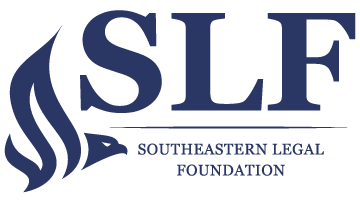As Americans reflect on the past year and how much power the federal government has taken for itself in the name of COVID-19, one of the most far-reaching power grabs came directly from the Centers for Disease Control and Prevention (CDC) in the form of a nationwide eviction moratorium. The CDC’s eviction moratorium is a severe overreach because the CDC lacks the constitutional authority to stop state eviction actions. That is why, Southeastern Legal Foundation and Texas Public Policy Foundation filed a federal lawsuit on behalf of a coalition of residential landlords and property owners challenging the CDC eviction moratorium as a violation of the Commerce Clause.
Read More
Under the CDC eviction moratorium order, private property owners are required to allow non-paying renters to live rent-free until the federal government says otherwise, costing landlords billions of dollars in unpaid rent – all while landowners remain responsible for property taxes, mortgages, and the costs of their property. And if a property owner tries to get their property back by filing an eviction case, the federal government says it can fine them up to $100,000 and even put them in jail.
In the lawsuit, SLF argues that the CDC’s eviction order is unconstitutional because the federal government cannot interfere with private property owners’ rights or access to the courts. When the CDC adopted the order and halted all evictions in our country, it grabbed power for itself that Congress cannot even grant it.
The CDC uses a facially absurd and twisted logic to suggest its intrusion into private property rights is a public health issue, which has inevitably and predictably allowed people to exploit the order. And the government has admitted as much. The CDC claims that it has the authority to suspend residential evictions for any reason, including its own views on “fairness.”
Intended or not, the CDC’s overreach will result in untold foreclosures and financial hardship to people who are simply trying to earn a living and pay their bills. It is in times of crisis when our constitutional protections are most needed and most vulnerable, for they are what set us as Americans apart from the rest of the world.
In February 2021, Judge Barker agreed with the plaintiffs and declared that the CDC eviction moratorium was unconstituional, setting it aside.
The court’s decision sets a critical precedent — the eviction moratorium imposed by the federal government is unconstitutional. That means that not even Congress can come in behind this decision and legislate. It is just flat-out unconstitutional. It also makes clear that even during a pandemic, the Constitution persists. For it is in times of crisis when our constitutional protections are most needed — and tragically, most vulnerable.
